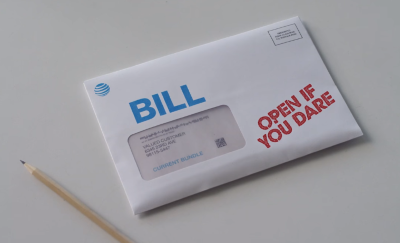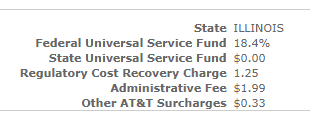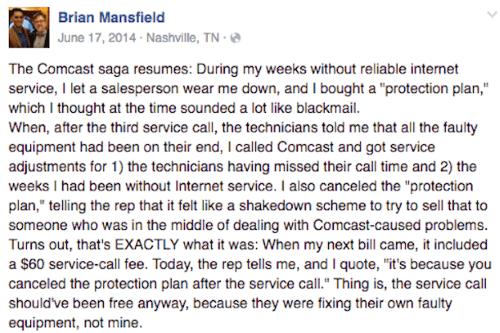 AT&T has some expensive legal bills to pay facing down the Justice Department’s objections to its recent expensive acquisition of Time Warner, Inc. But no worries, AT&T’s wireless customers will be helping to pick up the tab after another major hike in an “Administrative Fee” that will raise at least $800 million a year for the phone company.
AT&T has some expensive legal bills to pay facing down the Justice Department’s objections to its recent expensive acquisition of Time Warner, Inc. But no worries, AT&T’s wireless customers will be helping to pick up the tab after another major hike in an “Administrative Fee” that will raise at least $800 million a year for the phone company.
BTIG Research analyst Walt Piecyk caught AT&T hiking its Administrative Fee twice during the last quarter, now reaching $1.99 a month, billed to every post-paid wireless customer.
AT&T introduced the fee in 2013, claiming it would cover some of AT&T’s costs connecting phone calls and managing its wireless network. It started at $0.61 a month, then increased at some point to $0.76.
Although AT&T received negative press after introducing the fee, for most customers it is just one of several barely noticed charges applied in a separate section of monthly bills usually reserved for mandatory government fees and taxes. Many customers assume the fees are mandated by local, state, or federal governments, but in fact many are actually conjured up by AT&T and pocketed by the company. Most analysts believe companies create these fees to raise revenue without the perception of raising rates.
“The Administrative Fee helps defray certain expenses AT&T incurs, including but not limited to: (a) charges AT&T or its agents pay to interconnect with other carriers to deliver calls from AT&T customers to their customers; and (b) charges associated with cell site rents and maintenance.” – AT&T
Customers are now noticing the $1.99 Administrative Fee and complaining about it, after the company nearly tripled it over the last three months.

Fees and surcharges paid by a typical AT&T wireless customer in Illinois.
“In April of 2018, the Administrative fee increased to $1.26 and in June it rose again to $1.99,” Piecyk writes. “We believe the increase applies to all post-paid phone lines other than perhaps some large enterprise contract customers. We have confirmed that it does not apply to pre-paid lines after some customer service reps incorrectly told us otherwise last night. We believe this fee is included in AT&T’s reported service revenue and ARPU despite AT&T’s accounting change last quarter, which stripped regulatory fees and taxes out of both revenue and cost of service.”
Piecyk calculates that if 85% of AT&T’s 64.5 million postpaid wireless customers are now charged the fee, it will result in $800 million of incremental service revenue annually.
Piecyk is skeptical AT&T needed the money to cover cost increases.
“It’s hard to believe that interconnection costs have increased in the past six months enough to justify this fee increase,” Piecyk writes. “In fact, wireless operators have been crediting LOWER interconnection costs when explaining why their cost of service was in decline. Not surprisingly, we don’t recall any reductions in Administrative Fees by AT&T or its peers associated with reductions in interconnection expenses.”
Tower fees, also mentioned by AT&T, may have increased slightly, but as compensation for building out FirstNet, a public safety/first responder-prioritized wireless network, taxpayers are reimbursing AT&T $6.5 billion of FirstNet’s construction costs, despite the fact FirstNet will also benefit AT&T’s ordinary paying customers who will share the benefits of AT&T’s network expansion.
AT&T’s Administrative Fee hike will play right into the hands of T-Mobile, which has an advertising campaign blasting other wireless companies for sneaky fees. (0:45)


 Subscribe
Subscribe The Trump Administration is
The Trump Administration is  Comcast took more than $1,000 out of a West Fargo, N.D., resident’s checking account, despite the fact she isn’t a customer and Comcast doesn’t offer cable service in North Dakota.
Comcast took more than $1,000 out of a West Fargo, N.D., resident’s checking account, despite the fact she isn’t a customer and Comcast doesn’t offer cable service in North Dakota. Customers switched to Frontier Communications from Verizon in Florida, California and Texas continue to complain they are being overcharged for service, sometimes by hundreds of dollars a month, and they’re fed up.
Customers switched to Frontier Communications from Verizon in Florida, California and Texas continue to complain they are being overcharged for service, sometimes by hundreds of dollars a month, and they’re fed up.


